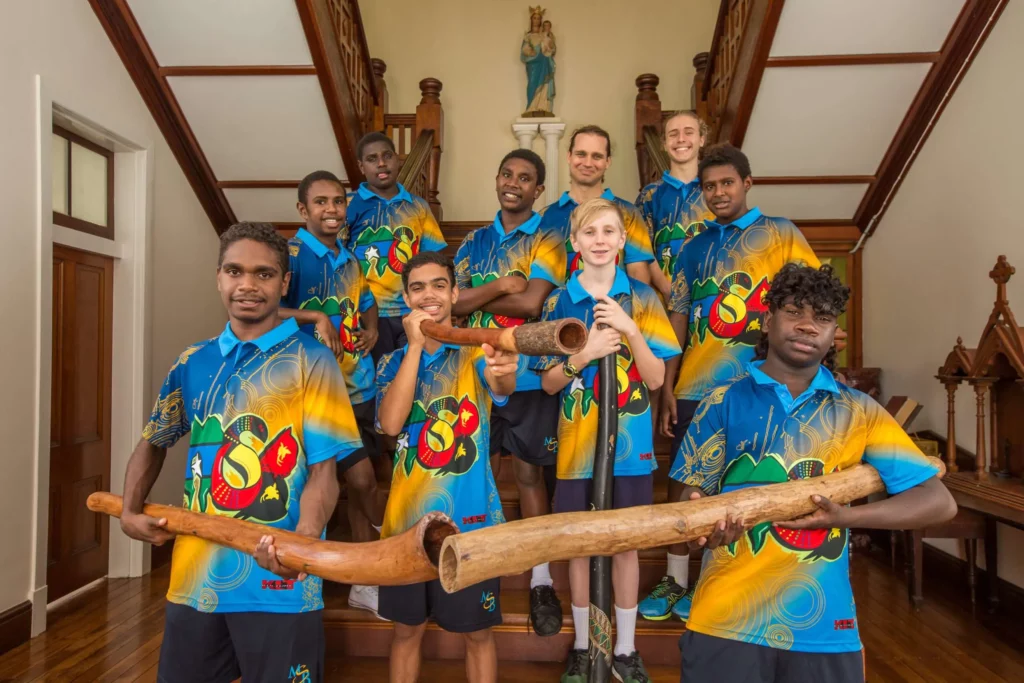20 Facts You Should Know About First Nations’ Culture

The wildly diverse landscape of Australia boasts everything from lush tangles of mossy rainforests, postcard perfect palms and towering mountain ranges stretching up from sparkling seas, to sweeping sunburnt plains, vibrant red earth, and, come winter, valleys entombed in frostings of snow. This great southern land holds stories of discovery and Dreamtime, of culture and connection, of belonging. Stories we all should know.
Aboriginal and Torres Strait Islanders are the oldest living culture in the world
The First Nations people of the land, seas and waterways can be traced back approximately 50,000 years or more. Although some studies suggest it may be closer to 60,000 years. As the oldest living culture in the world, it is a culture that demands deep respect.
The Dreamtime is an important part of Aboriginal culture and creation
The Dreamtime is a creation story from the very beginning, when the land, seas, waterways and people were created by the Spirits. Aboriginal people believe the whole world was created by their ancestors, who were sometimes in animal form such as the Rainbow Serpent.
Many Australian English words are derived from Aboriginal dialects
Many native animal names are derived from traditional Aboriginal language, including bilby, kangaroo, wallaby, barramundi, koala, wombat and kookaburra. Other words include billabong, boomerang and yakka.
Aboriginal rock art is the oldest surviving human art form
There are thousands of ancient rock art sites throughout Australia depicting animals, food, symbols and stories. The Aboriginal rock art in Western Australia’s Dampier Archipelago is believed to be at least twice as old as the pyramids of Egypt.
Acknowledgement of Country and Welcome to Country
Many public meetings in Australia commence with an Acknowledgment of Country where those attending acknowledge the Traditional Owners of the land, seas and waterways on which they meet. A Welcome to Country is performed by a Traditional Owner, welcoming participants to their country.
The didgeridoo is one of the oldest musical instruments
Made from tree trunks that have been hollowed by termites, the didgeridoo is believed to be one of the oldest musical instruments and used for ceremonial purposes.
There are more than 200 islands in the Torres Strait
The Torres Strait is the narrow strip of sea between Cape York and Papua New Guinea and home to more than 200 islands. Most of the islands are uninhabited but others are home to Zenadth Kes people (outer islands) and Kaurareg people (inner islands including Waiben and Hammond Island), along with the mainland.
The Torres Strait Island flag and Aboriginal flag are official flags of Australia
The Torres Strait Island flag was designed in 1992 with green representing the land; blue representing the water; black representing the people; white representing the major island groups, peace and the use of stars for navigation; and the dhari representing the culture and people of the Torres Strait. The Australian Aboriginal flag was designed in 1970 with black representing the people, yellow representing the sun and red representing earth, ochre and the connection to the land.
Bush tucker and medicine use native flora and fauna
Bush tucker refers to any native fauna and flora used by First Nations people, including kangaroo, emu, turtles, witchetty grubs, crocodile, quandong, yams and lemon myrtle. Native plants were also used as bush medicine as part of a holistic approach to healing.
Smoking ceremonies are used in rituals to cleanse
Smoke ceremonies have been used in rituals by Aboriginal and Torres Strait Islander people to assist in cleansing the area and people of bad Spirits. The ceremony uses native plants to produce smoke and is sometimes used today as part of Welcome to Country practices.
Cultural sensitivity warnings
Cultural sensitivity warnings notify Aboriginal and Torres Strait Islander people that there may be names, images and voices of people who have passed. This content can be distressing, particularly during a time of mourning, also known as Sorry Business.
A culture of kinship
Aboriginal and Torres Strait Islander people are often connected beyond immediate family, referring to extended family member with titles such as aunty, sister and mother.
Traditional law outlines accepted moral and social behaviours
Traditional law refers to rules that govern all areas of Aboriginal life, including relationships, seasons, ceremonies, family, flora and fauna. Traditional law also included punishments when those laws were breached.
Australian Rules Football is inspired by a traditional game
First Nations Australians have been playing Marn Grook using possum hide as a ball long before it inspired Australian Rules Football.
British arrived in Australia in 1788
The arrival of the First Fleet in 1788 introduced colonisation of British and many First Nations’ lives and land were lost from diseases and disputes.
The Stolen Generations
The Stolen Generations refer to Aboriginal and Torres Strait Islander children who were removed from their families by the Australian Government from 1871 through to 1969. In 2008, Australia’s then Prime Minister Kevin Rudd issued a national apology.
Terra Nullius was abolished after the Mabo Case
The famous Mabo case abolished Australia as ‘Terra Nullius’ (land belonging to no-one), acknowledged the history of First Nations dispossession of country and altered Australian land law to include Native Title.
National Close the Gap Day advocates for health equity
National Close the Gap Day brings together Australians from all over the country to advocate for health equity and take meaningful action to create better and more equitable conditions for the First Nations people.
NAIDOC Week celebrates Aboriginal and Torres Strait Islander achievements
NAIDOC Week, held in July, celebrates the history, culture and achievements of Aboriginal and Torres Strait Islander people.
This article was originally published in PakMag.
